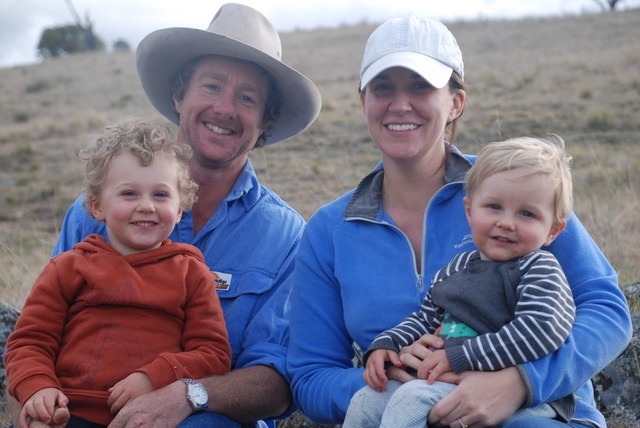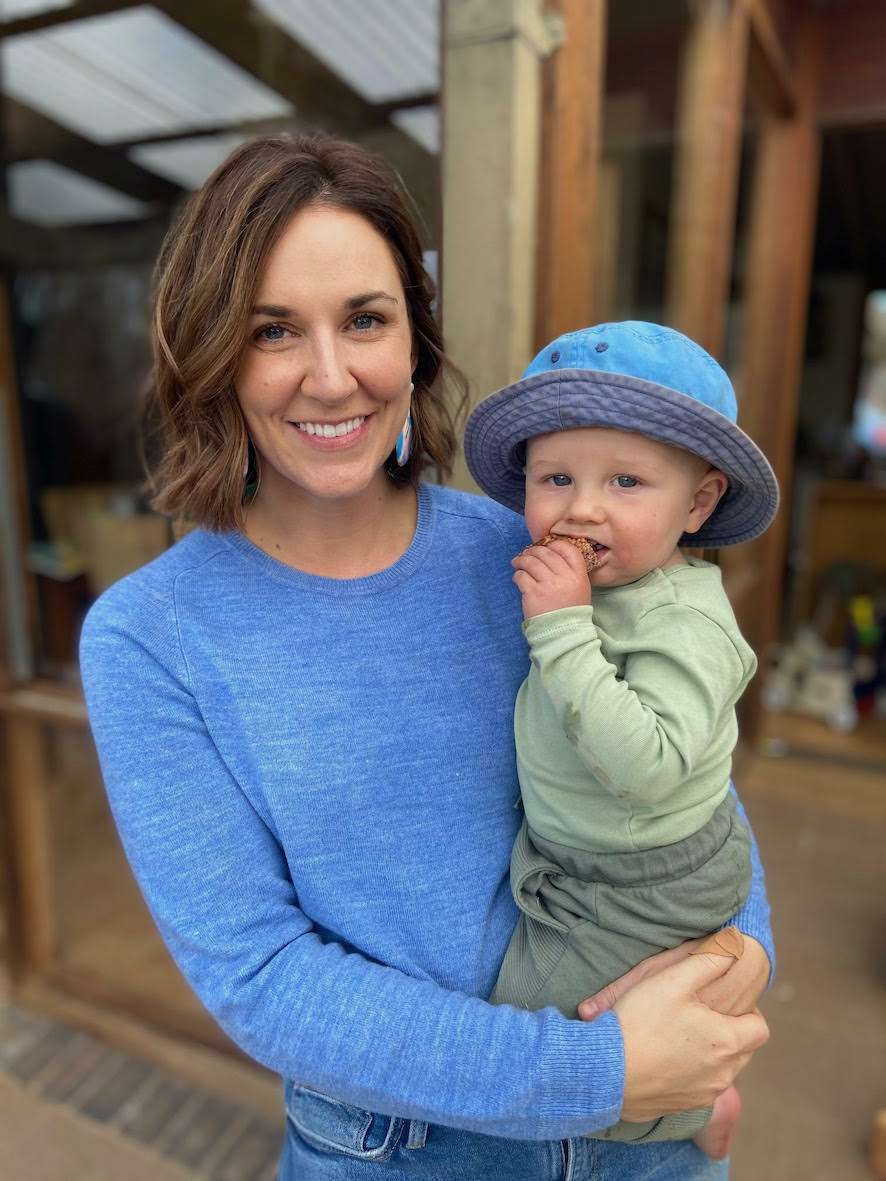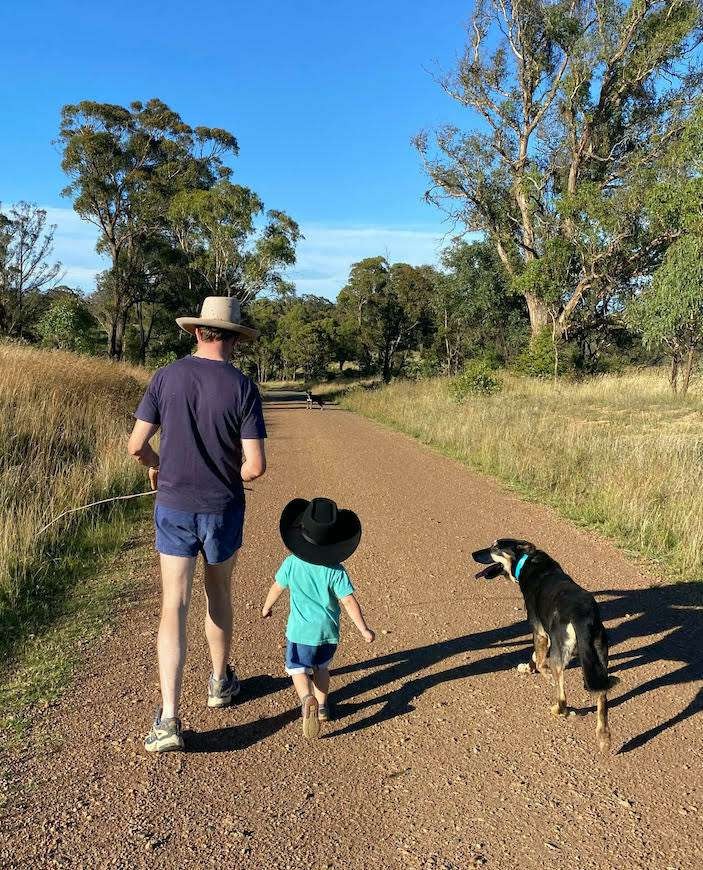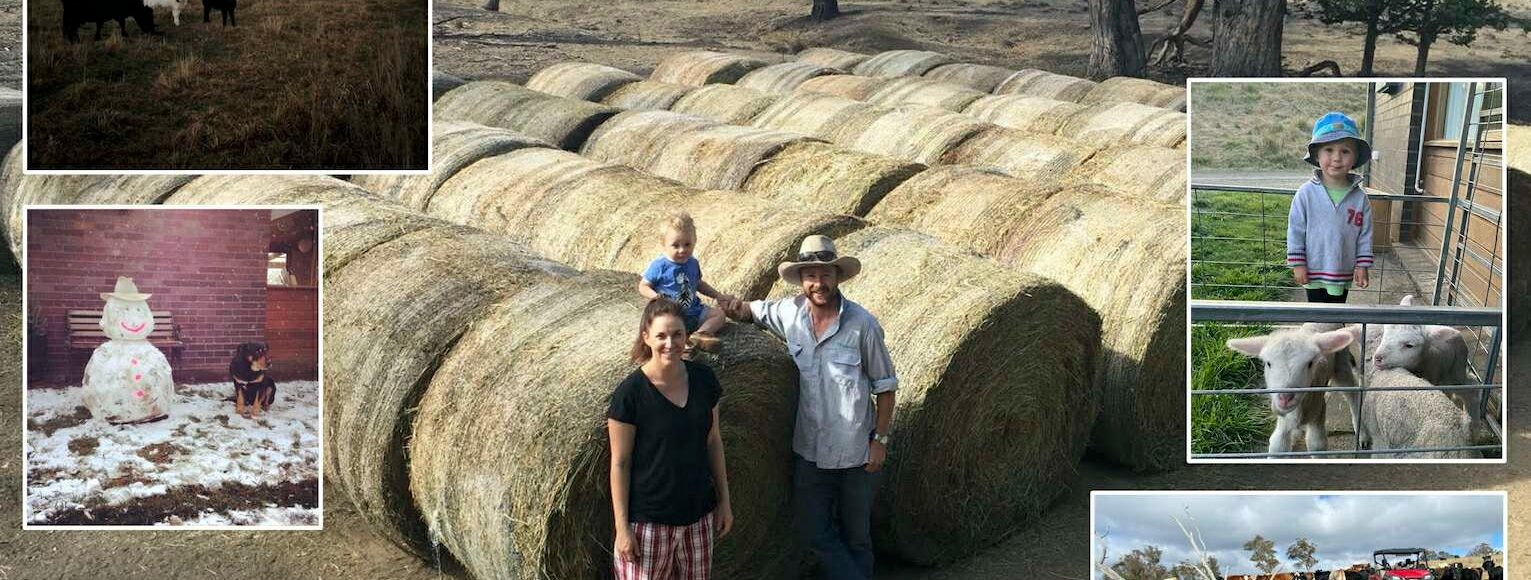When Alison Jones decided to try her luck on a reality TV show back in 2010, she could not have imagined where her life would take her – including training as a specialist GP with RVTS. She spoke with Patrick Daley.
I grew up in Sydney – I was an inner west girl!
I liked my creature comforts and was a real bookworm.
My grandparents had a farm near Bathurst, but I hated going there during the holidays because, as a kid, I thought it was really boring.
I didn’t know what I wanted to do when I finished school – I ended up doing a Science degree with a Chemistry major at the University of Sydney, and I enjoyed that, but the only jobs were in research, pharmaceuticals or mining, and I wasn’t really interested in any of those.
I was killing time and working some other jobs in retail, trying to work out what to do with my life, when I bumped into a girl I went to school with. She was doing Medicine at the University of Newcastle and loving it, so I thought I may as well give it a go.
Even at that stage, I was pretty undecided about a medical career.
But I was doing OK with my exams and thought maybe I was a bit of a people person. Then I got to the end of the course and thought “OK, I guess I am a doctor now!” I thought I’d just do my junior doctor years and see how they went.
Throughout my Medical degree, I’d been drawn mostly to General Practice as I liked its broad scope. I’d also seen how hard it was for my grandfather to deal with dialysis in a rural area, and thought it would be good if I could help in some way – so I had looked at rural General Practice early on in my degree, and kept that in the back of my mind.
By the time it got to my intern years, I’d been going out with my partner for five years, and he was a farmer at Walcha on the NSW Northern Tablelands – luckily I got an internship at Tamworth, which is only 1.5 hours drive from there.

Which is a great segue for my next question! How did you meet your partner?
I was still a Sydney girl then, and nearing the completion of my first degree but not sure what to do. My friends and I loved watching The Farmer Wants a Wife and there was an advert for new applicants one night on the show. I thought it might be a bit of a laugh!
The show had videos of farmers on their website and you had to apply to meet one of them. One of the farmers was this guy called Charlie – he was quite cute and he was holding a little puppy, and I love dogs, so I thought I’d just choose him. I didn’t think too hard about it.
Nine months later I was driving down Parramatta Road in Sydney, and I got a random phone call from the show. Out of 400 or so applicants, Charlie had chosen to meet six women – and one of them was me. Would I like to meet him?
My parents were horrified, as they are academics and not interested in reality TV at all.
I wasn’t sure either, but I did think it was a bizarre twist of fate…so I went ahead.
I initially thought Charlie was a little bit boring. But once it got down to only being me and one other applicant left, Charlie (who was quietly spoken for much of the show) opened up. I thought this guy’s really nice – I’d better try and win!
That was 11 years ago and now we have two kids. The show completely changed our lives.

What was it like being part of a reality TV program?
There was so much pressure on set. You’d wake up in the morning, do your own hair and makeup, and have a microphone put on you so the producers could catch everything you said.
They would come up with bizarre activities to do on camera – I had to shear a sheep on one episode and I was shocking at that. Then they’d ask you to both walk into the distance and talk about how many kids you want and what you want out of life.
Sometimes the producer would come up to you for a quiet word at the end of the day, and say something like “Charlie likes you, you should tell him too”, so they would really push the narrative – but I guess it worked!
It wasn’t until right at the end, once Charlie had chosen me, that the pressure was off – and we found that we really got along well.
We now have a mortgage and kids – but we’re not married and we’re not into doing the promotional stuff, so we don’t appear on any of The Farmer Wants a Wife media stuff.
We have got the whole series on DVD for the kids, though – and we’ve got 13 dogs too!
What was your first trip to Walcha like?
It must have been a Sunday, because everything was shut in town and I remember thinking “I’m literally in the middle of nowhere!”
I thought I’d made a terrible mistake.
It took me about two years to really get used to it, but the thing that did it for me is the really good community and group of friends we have here. It’s just a great place to live.
I do miss being able to go around the corner and get a coffee, or do some shopping, but I wouldn’t ever go back to the city. I just don’t think it’s a place I could bring up my kids.
I prefer the fact that, even in lockdown, we can get out and chop wood and the kids can play in the creek, compared to being stuck in an apartment in Sydney.
How did you become involved with RVTS?
I started with GP Synergy on the Australian General Practice Training (AGPT) program, which was really good, but in terms of me staying in Walcha it wasn’t really feasible because you need to move to a different practice every six months for training.
As a registrar with GP Synergy, I was working in Armidale and travelling a 150 kilometre round trip to our farm outside Walcha – it was just exhausting. Plus we had drought and bushfires here, I was helping on the farm and I was heavily pregnant.
I took extended leave from AGPT and wasn’t sure what I was going to do. Luckily, one of my friends who I had worked with in Tamworth mentioned RVTS to me.
I was really lucky for lots of reasons to get onto the RVTS program. At the moment I’m only working part-time as I’ve got a three year old, an 18 month old and a baby due in January, but I’ll get there eventually with my Fellowship – I have five years to complete it.
Three kids is it, by the way – no more after this!
How are you finding life as a rural doctor?
I’m loving it. I have a great group of patients, and I’m one of only two female doctors within a 150 kilometre round trip – and the only one who works in Walcha regularly – so I have a lot of female patients.
I’m getting a few more male patients now, but I had to laugh when we did our GP Explore exercise and it showed 99% of my patients were females – a suggested area of improvement was building the number of male patients!
There are a lot of ladies coming out of the woodwork who have dealt with pretty horrendous female issues for years and years, but felt uncomfortable seeing the male doctors in town for these things, so it’s been nice to be able to help them.
To be honest, I wasn’t super into women’s health before I started, but now I quite enjoy it – I can do a pap smear pretty quickly these days!
Other highlights are having the continuity with patients, looking after the babies, and getting to manage things a lot more than some of my urban counterparts – I really love that.
I also did some Emergency Medicine before committing to GP training, and did EM as my extended skill with AGPT, so using these skills as a VMO at Walcha Hospital is a great part of my practice mix. I also really like the palliative care work I get to do here.
It can be really hard separating life from work as a rural doctor – the old thing of seeing all your patients at the local IGA – but I’ve come to realise the need to make clear boundaries and to make them early.

What are you enjoying about RVTS training?
I honestly don’t think I’d be able to do my GP training if I wasn’t on the RVTS pathway – I would have just quit training, worked as a non-VR GP and locumed in the ED.
Having the weekly webinars and online workshops offered by RVTS has made life so much easier, and the regular webinars means you are constantly encouraged to learn.
I work with two experienced doctors here at the practice and can always pop next door to them and say “Hey, what is this weird thing on this person’s body?”
But I also talk regularly with my remote supervisor (Dr Louise Fisher from Armidale) about lots of stuff. As well as chatting about cases, we talk about challenging patients I might be seeing, tricky doctor-patient issues, or even just debrief about those really tough days.
I also write down the more complex conditions or consults, think about them during the week and what my approach should be, and then talk with Louise about things I need to consider.
She has been very helpful and encouraging, and knows what it is like to have small kids and be completely pooped at the end of the day – when you are parenting and medicine-ing, the juggle is a real thing!
Louise is very available for me – and she fits in with my crazy routine, which is really nice.
I really enjoyed the RVTS workshop at the start of the year. While it was held over Zoom this year due to COVID, it was great to cover those topics we see every day, and meeting all the other registrars was really interesting too.
It highlighted to me that some registrars have it way tougher than I do – like those remote Aboriginal communities where they don’t have an x-ray machine and it is more difficult to access medications.
But most of all, knowing there are people right across rural and remote Australia who are seeing and experiencing the same stuff as I am has been fascinating!
Are you an RVTS registrar with an interesting story, or a great hobby, to share?
Please email [email protected] to let us know, and we’ll get in touch with more details!




